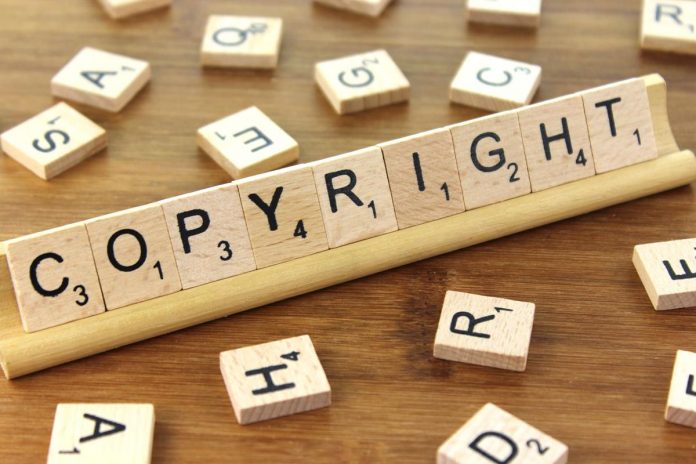This article is written by Vanija Bijmohan, pursuing Certificate Course in Intellectual Property Rights from LawSikho. Here she has discussed on copyrighted materials.
Introduction
In general, Copyright means “right to copy”. Copyright is an intellectual property right. Copyright is the bundle of legal rights of the creators of literary, dramatic, musical and artistic works, and producers of cinematographic films and sound recordings. The Copyright Act of India 1957 (hereinafter referred to as “ACT”) came into force from January 1958. This ACT has been amended six times. The most substantial amendment was in the year 2012. This amendment includes the ACT in conformity with the WIPO Copyright Treaty (WCT) and WIPO Performance and Phonograms Treaty (WPPT) to protect music and film industry and any concerns of physically disabled.
An act of infringement in the ACT
This ACT gives the exclusive rights of copyrighted materials to the owner to reproduce, create adaptation, translation, performance, display recording of broadcast and distribution, unless and until it becomes public domain. When any other person uses such copyrighted materials without proper authorisation of the owner, the act is considered as an infringement.
The ACT specifically states the circumstances under which the act of a person will be deemed as an infringed act:
- When a person does not have a license to use copyrighted material and if in any case, he has a license he acts in contrary to it. It includes making and reproduction of unauthorized copies and any performance in public.
- When a person makes copies for the purpose of sell sale or hire, distributes and exhibits in public for sale of trade which adversely affects the interest of the owner.
- Imports any infringed copies of work.
Fair use or fair dealing is an exception to the act of infringement
Fair use or fair dealing is an exception to the Act of an infringement. The Act does not define the term fair use. The meaning of the fair use is always interpreted by the courts depending on the facts of each case. When any person uses any copyrighted materials for fair dealings, he does not require any prior authorisation from the owner and such act will not be considered as an infringement.
The ACT deals with the various situations under which the acts of fair dealing are covered.
Situations under which use of copyrighted materials in educational institutions are allowed but subject to certain limitations
Educational Institution means an institution where people go to acquire specific knowledge in the form of education. Few examples of such institution are preschool, school, colleges, professional colleges, and universities.
The Act explicitly provides the provisions related to the fair dealing of copyrighted materials for educational purposes. Fair dealing is an exception to the exclusive rights granted to the author for his creative and original work. Fair dealing allows the educational institutions to reproduce or use of the copyrighted materials.
Following are the provisions which broadly enumerates of fair dealing of copyrighted materials in an educational institution:
- The reading or recitation in public of reasonable extracts from a published literary or dramatic work is allowed;
- The publication in a collection, mainly composed of non-copyright matter, bona fide intended for instructional use, and so described in the title and in any advertisement issued by or on behalf of the publisher, of short passages from published literary or dramatic works, not themselves published for such use in which copyright subsists:
This provision is limited and states that;- only two such passages from works by the same author are published by the same publisher during any period of five years;
- In the case of a work of joint authorship, references in this clause to passages from works shall include references to passages from works by any one or more of the authors of those passages or by any one or more of those authors in collaboration with any other person.
- The reproduction of any work will be allowed in the following circumstances only:
- By a teacher or a pupil in the course of instruction; or
- As part of the question to be answered in an examination; or
- In answers to such questions
- The performance in the course of the activities of an educational institution, of a literary, dramatic or musical work by the staff and students of the institution or of cinematograph flight or a sound recordings; this exception is available only when the audience for such performance is limited to staff, students, parents and guardians of the students and persons connected to such activities of the institutions or the communications of such audience of a cinematograph film or sound recording.
- The reproduction for the purpose of research or private study or with a view to publication of an unpublished literary, dramatic or musical work kept in library or museum or other institutions to which the public has access. This reproduction is limited to;
- In case the author is known to the library or museum or to any other institutions then reproduction will be allowed only after the 60 years from the death of the author.
- In case of a joint ownership, reproduction is allowed after 60 years from the date of the death of the author whose identity is known;
- In case of joint ownership, the identity of more than one author is known then reproduction will be allowed only after 60 years from the death of the author who dies last.
- Any performance of a literary, dramatic or musical work by an amateur club or society subject to such performance would be for a non-paying audience or for the benefit of religious institutions.
- Any act in relation to the translation of a literary, dramatic, or musical work, or the adoption of a literary, dramatic, musical, or artistic work as they apply to original work itself.
Modern technology and educational institutions
The emergence and advancement of the information technology changed the ways for storing and transmission of information. Digital technologies have been used in educational institutions. Virtual classroom, online courses and distance education become part of education. It has made copying any copyrighted materials easy and protection of such materials has become very difficult. Therefore, an introduction of technology measures like encryption becomes essential for educational institutions who are providing online education.
Scenario where course packs of copyrighted materials for education purpose is allowed
In “University of Oxford and others vs Rameshwari photocopy services” known as the DU photocopy case. In the year 2012, the publishers filed an injunction suit against Delhi University and Rameshwari Photocopy for infringement of the copyright materials. They contended that the Delhi University made photocopies of some books and made a compilation of it as a course pack for the purpose of the study and provided those course packs to students on payment of nominal charges. The publishers claimed that it is a clear case of infringement and course packs needs to be stopped. The publisher further claimed that permitting photocopies would cause damage to the publication publishing industry.
Delhi University and photocopy service provider taken defence that the course packs are cover under the fair use of copyrighted material. They mentioned clearly that the entire compilation was extracted from different books and the sole purpose was to use in the course of instructions by a teacher.
Delhi University further submitted that all students would not be in a position to purchase all books required in the offered course. Hence, the best possible way is to avail them by providing compiled study materials.
In 2016, a single judge of the Delhi High Court ruled against the publisher. He mentioned that the compilation of study materials from various books and making course pack protected as fair use of the copyrighted materials. Hence, no infringement of the copyrighted materials.
Being aggrieved by the order of the single judge Delhi High Court the publishers filed an appeal to the Division Bench of Delhi High Court. On September 2016, the Division Bench of Delhi High Court remanded the suit to the single judge Delhi High Court on the ground that compilation of course pack would be in the use of the course of instructions by the teacher.
On March 2017, The publishers withdrew the case from the Delhi High Court stating that they understood the crucial role played by the course packs in the education of the students.
On December 2016 a Special Leave Petition was filed before the Hon’ble Supreme court by the Indian Reprographic Rights Organization. In this petition, they challenged the decision of the Division Bench of the Delhi High Court who ruled that the course packs in India is legal for the purpose of education.
Hon’ble Supreme Court upheld the decision of the Delhi High Court on 9th May 2017 and dismissed the petition. The very basis of this case that the Supreme Court has taken into consideration the socio-economic conditions of India, the realities of the education system and above all affordability of students due to growing modern technology in the education system.
Fair use or fair dealing in various countries
Like India in Australia, UK and US Copyright laws specifically state that fair use of a copyrighted work or materials by educational institutions is not an infringement. Fair use involves the reproduction of copyrighted materials and any other uses that would be considered as an infringement.
Whereas, in countries like France, Germany, Spain, Netherlands, Sweden and Switzerland no statutory provisions are there to deal with fair use.
Conclusion
In India, copyright laws related to the usage of copyrighted materials in the educational institutions are very clear and strong. The fair dealing of copyrighted materials for educational institutions is limited to the extent it is used “in the course of instructions”.
Today, we are living in the digital era and many people are learning and gaining knowledge through the internet and digital technology. This new concept of learning and using of copyrighted materials for educational institutions is well protected, if reproduction is done during the course of instructions and for non-commercial purposes only. Still, there are many techniques by which reproduction of copyrighted materials can be done by an individual. For example. If a student enrolled for a particular online course and pays a fee for it. He gets access for copyrighted material. He copies them on his mobile and forwards it to his friends for their personal usage. Even though he is not copying for any commercial purpose, such acts needs to be stopped.
Hence, we required to set up a new and clear guidelines regulate the fair dealing or fair use of the copyrighted materials to combat with the arising issues in respect to the uses of emerging digital and modern techniques of education.
Students of Lawsikho courses regularly produce writing assignments and work on practical exercises as a part of their coursework and develop themselves in real-life practical skill.
 Serato DJ Crack 2025Serato DJ PRO Crack
Serato DJ Crack 2025Serato DJ PRO Crack










 Allow notifications
Allow notifications


